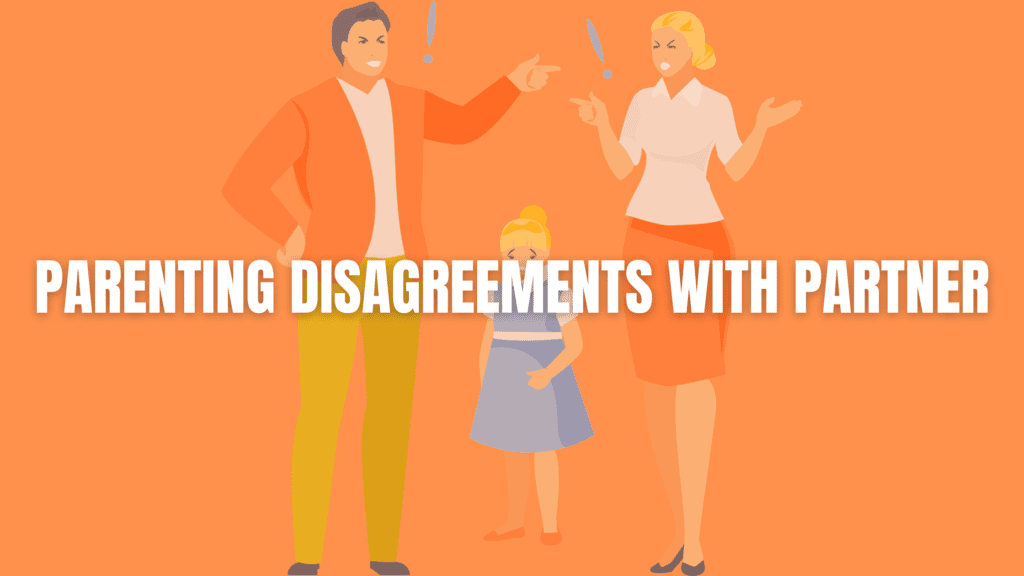Parenting is one of the most beautiful yet challenging journeys in life. When two people come together to raise a child, their love and dedication form a strong foundation. But no matter how much you love each other, disagreements will happen. And that’s okay. Maybe you were raised differently. Maybe your values don’t always align. Or maybe exhaustion and stress make even small issues feel big. The good news? You’re not alone, and there are ways to navigate these disagreements with love, patience, and teamwork. Learn about How to Handle Parenting Disagreements with Your Partner.
1. Remember You’re on the Same Team
When disagreements happen, it can feel like you and your partner are on opposite sides. But the truth is, you’re in this together. You both love your child, and at the end of the day, you want what’s best for them. Shift the mindset from “me vs. you” to “us vs. the problem.”
Instead of focusing on who’s right, focus on what’s right for your child.
2. Communicate with Kindness, Not Criticism
It’s easy to get defensive when you feel strongly about something. But instead of blaming or criticizing, try to approach the conversation with kindness and curiosity.
Instead of saying, “You’re too strict,” try, “I feel like our child responds better when we’re a little more flexible. What do you think?”
Instead of, “You never back me up,” try, “It really helps me when we present a united front. How can we work on this together?”
Small shifts in wording can turn a tense conversation into a productive one.
3. Listen to Understand, Not to Win
When emotions run high, we sometimes listen just to respond instead of truly hearing each other. Take a step back. Breathe. Give your partner the space to express their feelings, even if you don’t immediately agree.
Try saying, “I see where you’re coming from,” or “I hadn’t thought about it that way.”
When both of you feel heard, it’s easier to find common ground.
4. Pick Your Battles
Not every disagreement needs to turn into an argument. Ask yourself, “Is this really worth a fight?” Some things are non-negotiable (like safety and respect), but others might just be personal preferences. If it’s not harming your child, maybe it’s okay to let some things go.
Flexibility is key to parenting, and to a strong relationship.
5. Find a Compromise That Feels Right
You don’t have to agree on everything 100%. The goal is to find a solution that respects both of your perspectives while keeping your child’s best interests at heart.
Maybe you take turns on certain decisions. Maybe you create a plan together. Maybe you agree to try one approach and adjust if it doesn’t work. Parenting isn’t about perfection, it’s about teamwork.
6. Show a United Front (Even If You Don’t Fully Agree)
Kids are smart. If they sense division between their parents, they might play one against the other. Even if you have different opinions behind closed doors, try to present a united front when talking to your child.
You can say, “Mom and Dad talked about this, and we’ve decided…” This helps your child feel secure and understand that both parents are working together.
7. Take a Break When Things Get Heated
Sometimes, disagreements get too emotional. And that’s okay, it just means you care. If a conversation starts to turn into an argument, take a pause. Step away, cool down, and come back when both of you are calmer.
A simple, “Let’s talk about this later when we’re both in a better headspace,” can prevent a fight from escalating.
8. Seek Support When Needed
There’s no shame in asking for help. Whether it’s talking to a trusted friend, a parenting coach, or even seeking couples counseling, getting an outside perspective can be incredibly helpful. You’re not failing if you ask for support, you’re showing strength by prioritizing your relationship and your family’s happiness.
Love and Respect Come First
At the end of the day, not knowing how to handle parenting disagreements doesn’t mean you’re incompatible. They mean you both care deeply about raising your child in the best way possible. Approach these moments with love, respect, and patience. You’re not just raising a child, you’re growing as a couple, too. And that’s something beautiful. 💛

